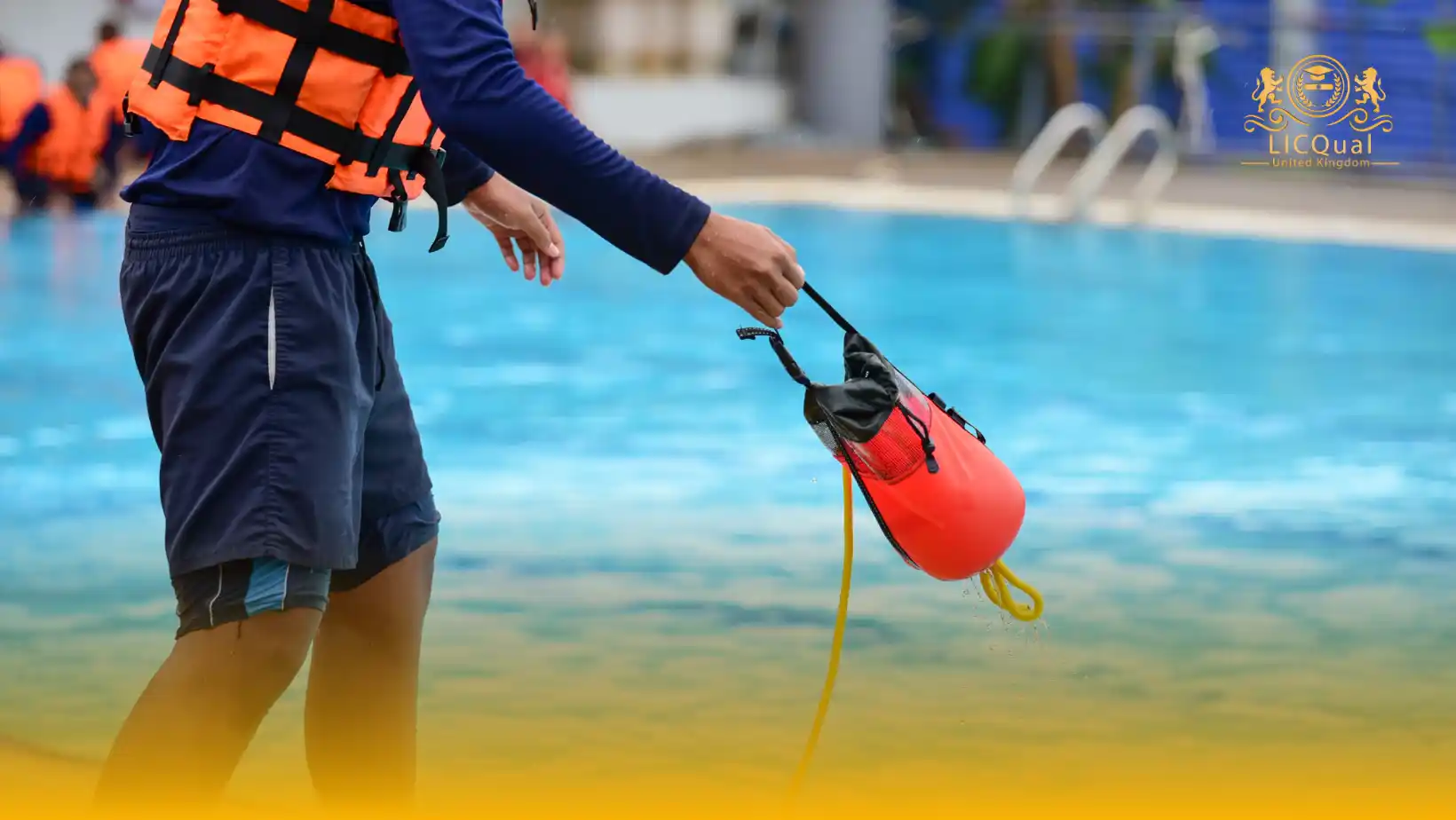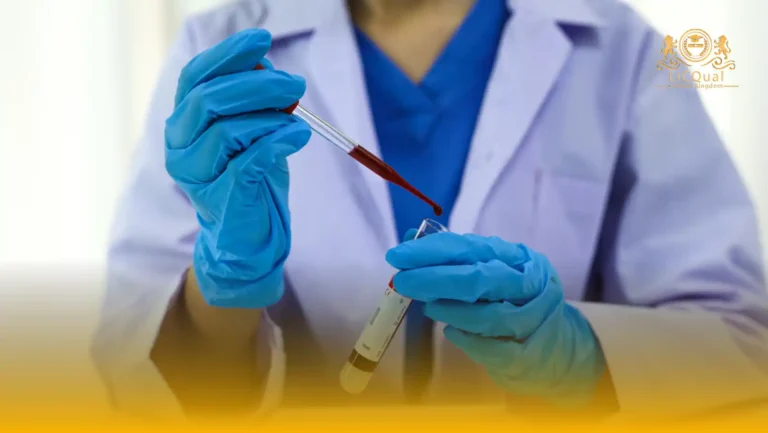The LICQual Level 3 Award in National Vocational Beach Lifeguard Qualification (NVBLQ) is a prestigious, internationally recognized certification for individuals aiming to work as professional beach lifeguards. This comprehensive program equips learners with the essential skills, knowledge, and confidence to safeguard lives in open water environments. Covering surf, tidal, and coastal conditions, the NVBLQ ensures participants are fully prepared to manage both routine safety duties and emergency rescue situations on the beach.
Designed to meet international standards, this qualification blends theory with intensive practical training, ensuring learners can operate effectively in high-pressure, real-life scenarios. From advanced water rescue techniques to first aid, CPR, and casualty management, the course develops a complete beach safety professional.
The NVBLQ provides a balanced mix of classroom learning and hands-on, open-water training. Participants will learn hazard identification, risk assessment, rescue board handling, spinal injury management, and emergency response procedures. The course also emphasizes teamwork, communication, and leadership — critical skills for working within lifeguard teams and with emergency services.
Upon successful completion, candidates will be fully qualified to work as beach lifeguards worldwide, opening career opportunities in tourism, water sports, and coastal safety services while contributing to safer coastal communities.
Course Overview
Qualification Title
LICQual Level 3 Award in Open Water Lifeguard (OWL) Qualification
Total Units
6
Total Credits
6
GLH
12
Qualification #
LICQ2200595
Qualification Specification
To enroll in the LICQual Level 3 Award in Open Water Lifeguard (OWL) Qualification applicants must meet the following criteria:
|
Qualification# |
Unit Title |
Credits |
GLH |
|---|---|---|---|
|
LICQ2200595-1 |
Principles of Open Water Lifeguarding |
1 |
6 |
|
LICQ2200595-2 |
Open Water Safety Operations & Risk Management |
1 |
6 |
|
LICQ2200595-3 |
Rescue Techniques in Open Water |
1 |
6 |
|
LICQ2200595-4 |
First Aid and CPR for Open Water Environments |
1 |
6 |
|
LICQ2200595-5 |
Emergency Response & Incident Management in Open Water |
1 |
6 |
|
LICQ2200595-6 |
Communication, Teamwork & Leadership in Lifeguarding |
1 |
6 |
By the end of this course, learners will be able to:
Principles of Open Water Lifeguarding
- Understand the roles, responsibilities, and professional standards of an open water lifeguard.
- Explain the principles of open water surveillance and hazard recognition.
- Identify environmental factors affecting open water safety.
- Demonstrate knowledge of legal and ethical considerations in lifeguarding.
Open Water Safety Operations & Risk Management
- Assess and manage risks in open water environments.
- Apply safe operating procedures for open water lifeguard duties.
- Understand the use of safety equipment and preventative measures.
- Develop strategies to prevent incidents through proactive lifeguarding.
Rescue Techniques in Open Water
- Demonstrate proficiency in open water rescue techniques.
- Use rescue equipment effectively in different water conditions.
- Apply self-preservation and casualty-handling techniques.
- Conduct rescues in various open water scenarios, including multiple casualties.
First Aid and CPR for Open Water Environments
- Administer CPR and AED in aquatic emergencies.
- Provide first aid for injuries and illnesses common in open water settings.
- Manage drowning, hypothermia, and other aquatic medical emergencies.
- Demonstrate correct use of first aid equipment in open water environments.
Emergency Response & Incident Management in Open Water
- Implement emergency action plans in open water incidents.
- Coordinate with emergency services and other lifeguards.
- Manage critical incidents with calm and effective decision-making.
- Record and report incidents accurately in compliance with regulations.
Communication, Teamwork & Leadership in Open Water Lifeguarding
- Demonstrate effective communication in open water operations.
- Apply teamwork skills to ensure safety and operational efficiency.
- Exhibit leadership during routine operations and emergencies.
- Support the training and development of other team members.
The LICQual Level 3 Award in Open Water Lifeguard (OWL) Qualification is designed for anyone who wants to build a professional career in water safety, rescue, and lifeguarding. Whether you are new to the field, an experienced pool lifeguard aiming to expand your skills, or a professional working in outdoor water activities, this course equips you with the practical knowledge and internationally recognized certification needed to succeed in open water environments.
1. Aspiring Lifeguards Seeking Professional Certification
- Ideal for beginners who want to start a career in lifeguarding
- Provides a recognized Open Water Lifeguard Certification
- Builds confidence in handling real-life emergencies in natural waters
- Equips learners with vital rescue and first aid skills
- Opens opportunities in both local and international job markets
2. Experienced Pool Lifeguards Wanting to Upskill
- Perfect for lifeguards transitioning from pool to open water environments
- Expands skillset to cover rivers, lakes, and coastal rescue situations
- Enhances employability with a Level 3 Open Water Lifeguard Training credential
- Prepares candidates for challenging and unpredictable conditions
- Strengthens knowledge in casualty care and risk assessment
3. Adventure Park and Water Sports Professionals
- Suitable for staff working in water-based recreation and sports facilities
- Ensures compliance with safety standards for open water activities
- Provides essential training in water rescue and emergency response
- Boosts employability at water parks, outdoor adventure camps, and resorts
- Enhances visitor safety and overall operational reliability
4. Emergency Response and Rescue Teams
- Designed for members of emergency services handling water-related incidents
- Builds advanced skills in open water safety and rescue training
- Supports preparedness for floods, river rescues, and coastal emergencies
- Strengthens teamwork, communication, and decision-making under pressure
- Recognized as an industry-standard certification for rescue teams
5. Outdoor Instructors and Water Activity Leaders
- Beneficial for kayaking, canoeing, and sailing instructors
- Enhances credibility with a globally recognized lifeguard qualification
- Prepares leaders to safeguard participants during water-based activities
- Teaches quick and effective response to unexpected incidents
- Ensures compliance with health and safety guidelines
6. Students and Job Seekers in the Leisure Industry
- Perfect for individuals pursuing careers in leisure and tourism sectors
- Adds strong value to resumes with a job-ready lifeguard certification
- Offers entry-level opportunities at beaches, resorts, and water facilities
- Provides transferable skills in risk management and safety awareness
- Helps learners stand out in competitive international job markets
7. Organizations Seeking Staff Training and Compliance
- Suitable for companies operating in water-based leisure and safety sectors
- Ensures staff are professionally trained and safety-compliant
- Reduces liability risks with certified open water rescue skills
- Improves organizational reputation through skilled lifeguard teams
- Supports compliance with international safety regulations
Assessment and Verification
All units within this qualification are subject to internal assessment by the approved centre and external verification by LICQual. The qualification follows a criterion-referenced assessment approach, ensuring that learners meet all specified learning outcomes.
To achieve a ‘Pass’ in any unit, learners must provide valid, sufficient, and authentic evidence demonstrating their attainment of all learning outcomes and compliance with the prescribed assessment criteria. The Assessor is responsible for evaluating the evidence and determining whether the learner has successfully met the required standards.
Assessors must maintain a clear and comprehensive audit trail, documenting the basis for their assessment decisions to ensure transparency, consistency, and compliance with quality assurance requirements.







